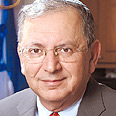
This scenario is hard to imagine in Jewish law due to a distinct trait in Jewish orthodox thought.
About three months ago, President George W. Bush used his right of veto for the first time and his party is likely to bear the consequences at the upcoming elections. He nullified the Senate's resolution to expand the abovementioned research and its public funding, and he did so by employing religious arguments. He, as a Christian believer, felt obliged to limit intellectual curiosity pertaining to human life.
Under the Bush administration and its commendable separation between state and religion, researchers are banned from conducting stem cell experimentation in public laboratories. Even the vast medical potential of stem cell biology is not currently available to the American academia.
Meanwhile here in Israel, a state that has yet to separate state from religion, there is no legal restriction regarding stem cell research for reasons pertaining to religion. This derives from Judaism's liberal attitude in its definition of the beginning of embryonic life (which enables abortions at the early stages of pregnancy, contrary to Christianity).
There is also no legal restriction stemming from religion imposed on any other research in the fields of natural science.
Jewish law relating to religion and medicine leans on the rulings of our greatest rabbinical arbiters and is aimed at saving human life. On dealing with the general topic of religion and science, more than 900 years ago Maimonides wrote that God's divine science would not be achieved without natural science.
In other words, contrary to what is often attributed to traditional Jewish thought, there is no contradiction between religion and science according to orthodox Jews. "Only after achieving natural science," namely, only when relying on the truths embodied in the laws of natural science, can a Jew come closer to his God.
The understanding of this information and its rules is perceived in Judaism as "God's will", to which we are all obligated to adhere.
Subsequently, there is no contradiction between a law-abiding Jew - a believer in the laws introduced by Maimonides - and a scientist involved in a modern scientific discipline.
Faith is in the creator of the universe "who has no body and no bodily image" as in the words of the prayer, and therefore he cannot be described and has no form. Scientists explore the secrets of nature with the gifts bestowed on them so as not to deny the presence of logical facts.
A Jew who makes the connection between Judaism and science must not be a Karaite who interprets the Torah in a limited literal way. We must pursue the tradition of our great scholars who didn't call for "an eye for an eye."
Reconciling Judaism and Big Bang
I have found enough explanations in the pages of the Talmud to demonstrate that each of the six days of the creation were not limited to 24 hours.
Subsequently, there is no difficulty accepting the findings that tie the familiar beginnings of the "big bang" creation, set at roughly 15 billion years of age, to Earth at 4.5 billion years of age. Religious scientists are not sinning when they don't ignore evolutionary evidence – the gradual development of life throughout at least 2.5.billion years.
Scientific law in the eyes of the Jewish spirit is the will of God. Any contradiction between this and Jewish faith is fictitious, resulting from lack of human knowledge which is destined to be filled.
According to Judaism, such knowledge must be fully exploited; human knowledge should not be hindered and we should not ignore it by extolling ignorance.















